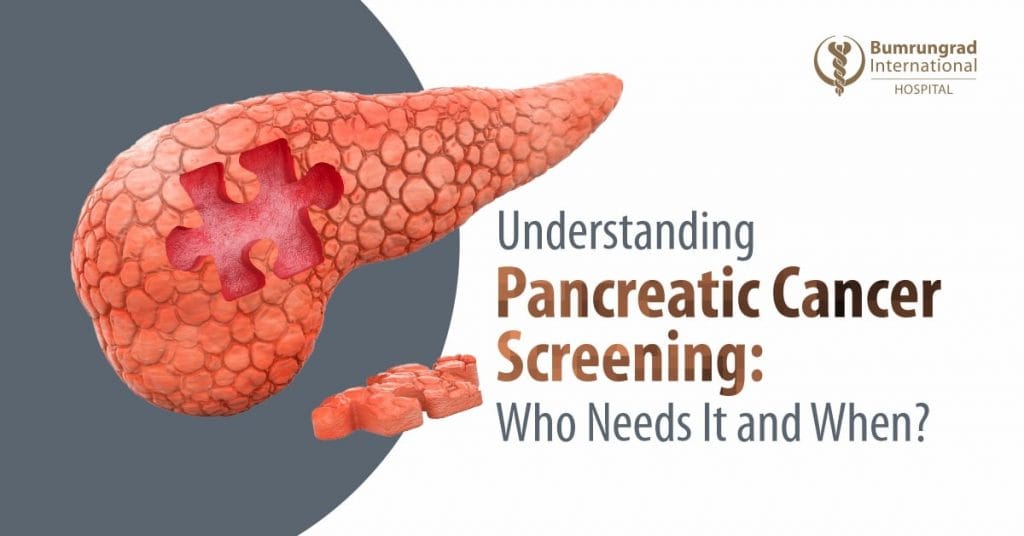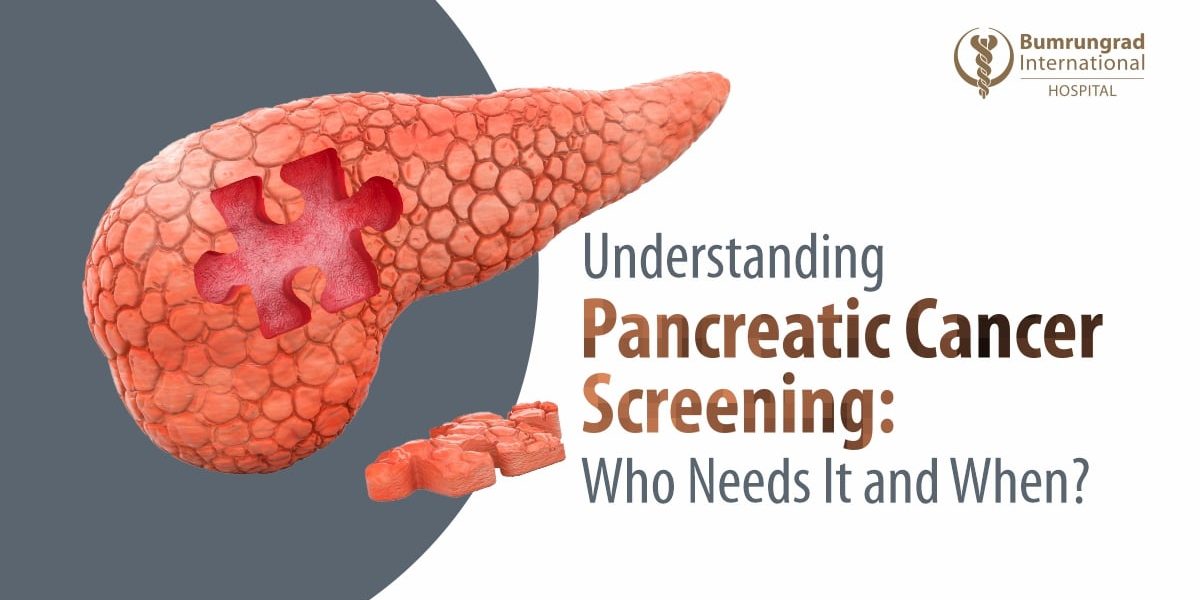
Pancreatic cancer, ranking as the 12th most common cancer globally, presents unique challenges in both diagnosis and treatment. Alarmingly, it maintains one of the highest mortality rates among cancers—nearly as many people die from it as are diagnosed each year. From 331,000 deaths in 2015 to over 505,500 by 2023, pancreatic cancer deaths have surged by 53%. Despite this grim statistic, survival rates have seen improvements: from 7% in 2015 to 12% in 2023, signaling advancements in early detection and treatment.
Who Should Consider Screening? Screening for pancreatic cancer is crucial, especially for those at high risk. Experts recommend starting screening at:
- Age 50, or ten years younger than the earliest case in your family, for those with a family history of the disease, individuals with mutations in the BRCA1, BRCA2, and PALB2 genes, and those with Lynch syndrome.
- Age 40 for individuals with mutations in the CDKN2A and PRSS1 genes often associated with hereditary pancreatitis.
- Age 35 for those diagnosed with Peutz-Jeghers syndrome, a condition that significantly increases cancer risk.
Recommended Screening Tests
Currently, there is no reliable blood test for pancreatic cancer screening. For individuals in high-risk categories, annual screening is essential and may include the following:
- Magnetic Resonance Imaging (MRI): Provides detailed images of the pancreas, helping detect early signs of cancer.
- Endoscopic Ultrasound (EUS): Involves a special device called an endoscope that uses sound waves to create detailed images of the pancreas from inside the abdomen. The endoscope is a flexible tube with a camera and ultrasound technology, which allows doctors to examine the pancreatic tissues closely for accurate diagnosis and assessment.
Recommended Screening Interval: Every year
Deciding when to start and stop screening for pancreatic cancer should consider each person’s unique risk factors and family history. Typically, screening starts at certain ages for those at high risk and is done every year to catch any early signs of change. The American Gastroenterological Association (AGA) advises that screening can be stopped for high-risk individuals if they are more likely to die from other health issues not related to pancreatic cancer, or if they have serious health conditions that would make them unable to undergo surgery to remove the pancreas.
The Role of Genetic Testing
Genetic testing plays a pivotal role in identifying those at elevated risk for pancreatic cancer. By detecting specific mutations, individuals can make informed decisions about starting early screening.
Why Early Detection Matters
Pancreatic cancer is difficult to detect early, as people typically do not experience symptoms until the cancer has grown significantly or spread to other organs. Early detection is crucial for improving survival rates in pancreatic cancer patients. By identifying the cancer or its metastasis at an early stage, treatment can be more targeted and potentially more effective.
Stay Informed, Stay Healthy
Staying informed about pancreatic cancer and understanding the importance of screening can save lives, especially for those at higher risk. If you or someone you know falls into one of the high-risk categories, discuss screening options with your healthcare provider to take proactive steps towards early detection.
For more information, visit Bumrungrad Hospital
By Asst. Prof. Dr. Veeravich Jaruvongvanich, Gastroenterology and Hepatology













